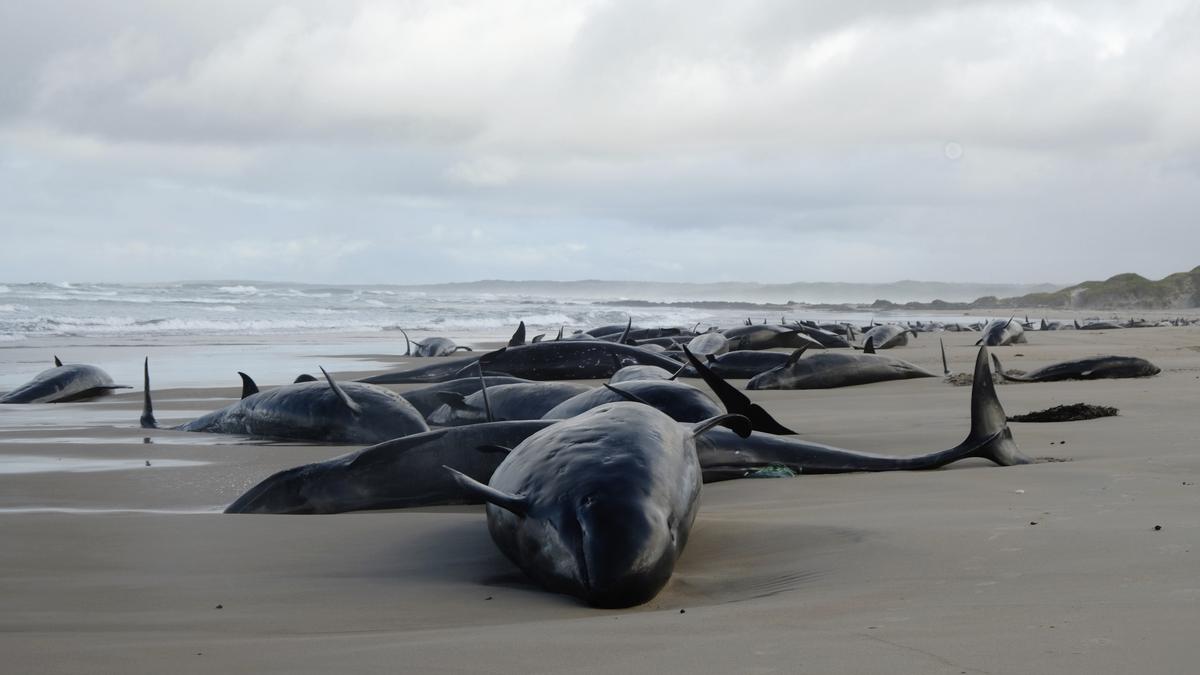Mass Stranding of False Killer Whales in Tasmania

- 23 Feb 2025
In News:
Recently, over 150 false killer whales were found stranded on a remote beach near Arthur River on the northwest coast of Tasmania, Australia. The incident is one of several mass strandings reported in the region in recent years.
The event echoes earlier mass strandings:
- In 2022, 230 pilot whales stranded at Macquarie Harbor.
- In 2020, 470 long-finned pilot whales were stranded at the same site—the largest mass stranding in Australian history.
Possible Causes of Whale Strandings
Although the precise cause remains uncertain, potential factors include:
- Disorientation from loud underwater noises (e.g., naval exercises, seismic surveys)
- Illness, old age, injury
- Fleeing predators
- Severe weather events
- Geomagnetic anomalies
About False Killer Whales
- False killer whales (Pseudorca crassidens) are not true killer whales but belong to the Delphinidae family, which also includes dolphins and pilot whales.
- They are large, social cetaceans, often found in warm, deep oceanic waters.
- These whales are highly vocal and social, forming strong social bonds within pods.
- Like other cetaceans, they rely on echolocation (underwater sound) for communication, hunting, and navigation.
About Killer Whales (Orcas)
- Although not involved in the stranding, killer whales (Orcinus orca) are relevant as close relatives within the same family (Delphinidae).
- Known for their distinct black and white markings, orcas are the largest members of the dolphin family.
- They are globally distributed in both open oceans and coastal waters.
- Killer whales live in stable matrilineal pods and use complex vocalizations.
Conservation Status
- The IUCN Red List classifies false killer whales and killer whales as Data Deficient, indicating that there is insufficient information to assess their risk of extinction.
